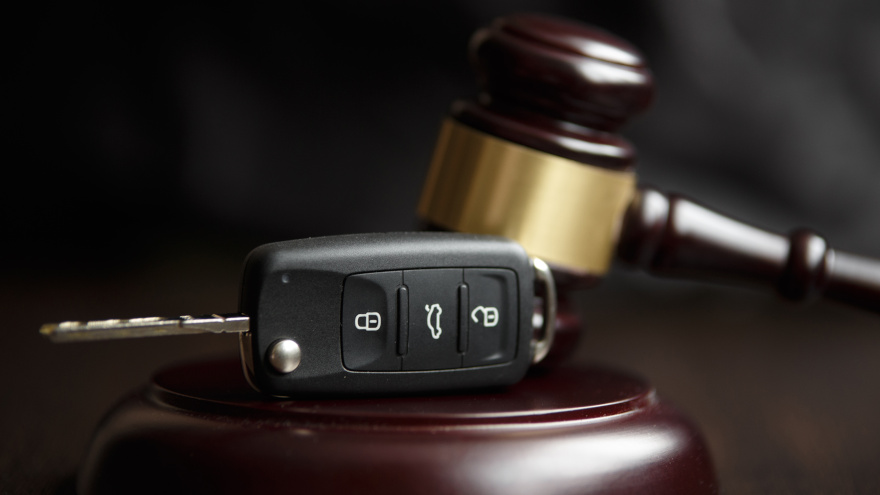COMMENTARY: The independent auto auction is here to stay

By subscribing, you agree to receive communications from Auto Remarketing and our partners in accordance with our Privacy Policy. We may share your information with select partners and sponsors who may contact you about their products and services. You may unsubscribe at any time.
Like most great entrepreneurial success stories, the auto auction industry has its roots in a simple but bright idea: If auctions could be successful selling livestock or machines or farm products, why not sell cars to a competitive bidding audience at the urging of an auctioneer and his gavel?
That’s just the idea that J.M. Rawls, co-owner of a used-car outlet in Leesville, S.C., considered in early in 1938 as he attended a cattle auction in nearby Columbia.
His partner, S.L. Montgomery, was skeptical, but agreed to give Rawls’ idea a try. About 35 dealers attended the history-making event, watching 13-15 cars parade through the rented lobby of an old theater building on Main Street in downtown Leesville. That day, the nation's first auto auction, Rawls Auto Auction, was founded, and an industry was born.
The same year, the Bruce Auto Auction (now known as Greenville Auto Auction and operating under the America's Auto Auction banner), opened in South Carolina, and the "idea” soon took fire. After World War II, auto auctions began to spring up all over the country — in barns, garages, warehouses, Quonset huts, fairground tents and even an ice-skating rink.
Most of these auction companies started on a shoestring, but their owners had dreams — and vision for future growth.
Fast forward 82 years to 2020: the Rawls and Greenville Auctions are still going strong, in company with nearly 200 independent auctions operating in the United States. In fact, 22 of those independents, among the very first in the industry, have been in operation for more than 50 years.
Subscribe to Auto Remarketing to stay informed and stay ahead.
By subscribing, you agree to receive communications from Auto Remarketing and our partners in accordance with our Privacy Policy. We may share your information with select partners and sponsors who may contact you about their products and services. You may unsubscribe at any time.
It's not necessarily longevity that measures the success of an auction. But the fact that so many of our industry's independent facilities have been serving their customers so long is an indication of the vitality of the industry, and the expertise the independents have in facilitating the wholesale buying and selling process.
Those early auctions, those early entrepreneurs, figured out a system that proved to be tremendously successful and had the vision to move along with the times, embracing progress and technology and evolving into ultra-modern businesses selling thousands of vehicles every week.
The auction business moved from a pen-and-paper enterprise to a high-tech industry with dizzying speed as innovation swept the country with the advent of computer technology. The very first simulcast auction was held at an independent auto auction in October of 1995 at State Line Auto Auction in Waverly, N.Y., where 400 vehicles at a General Motors closed sale were offered both live and electronically.
Just four years later, in 1999, the automotive industry recorded another day for history thanks to an event held at another independent auto auction: the first live internet auction, using the On-Line Ringman software system, was hosted at Pennsylvania Auto Dealers Exchange. It was the start of more great things to come.
In the 1990s auctions rapidly moved from low-tech to high-tech with fully computerized operations, paperless money transfers, electronic title transfer, Internet-based services and satellite auctions. Those independent auctions which started it all embraced technology, continued to invest in modernizing their facilities and developing the technology tools to meet the needs of a sophisticated marketplace.
Today, all told, there are 194 Independent auctions in operation in North America, which continue to have a major and positive impact on the remarketing community. They have grown with and transformed the industry, embracing change, staying in step with market trends and innovation. But they lead with what contributed to their success all those years ago: they remain family-operated businesses, rooted in the vales that made this country great, focusing on face-to-face transactions, personal service and commitment to the customers.
The independent auction of the 21st century is thriving, says Jimmy Rawls, president and owner of Rawls Auto Auction.
"In this age of giants, like Amazon, or the corporate auctions — or the disruptors, where customers are doing business with a computer screen — the independent auctions are successful because real people meet customers every day and stand behind every transaction.”
The brick-and-mortar auction, championed all those years ago by a few entrepreneurs with vision, is a vital element in the remarketing process, says Laura Taylor, GM of XLerate Group's Charleston Auto Auction and this year's president of the NAAA.
"The energy of auction day with cars running in a lane packed with people is the essence of what we are. You can bid online all day long, but until you've got two or more people standing around in a lane with bells and whistles going off and the excitement going on, you're not getting all your money.”
Conceived and nourished for more than 80 years by independent auto auctions dotting the map, the brick-and-mortar auction is not going away. It is strong, successful and a vital part of the process of a vital industry, due in large measure to the work and dedication of the independent auction community which founded the industry and continues to give it life.
The independent auto auction is here to stay.
Lynn Weaver is the executive director of the Independent Auction Group.


